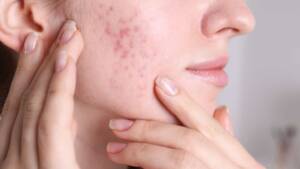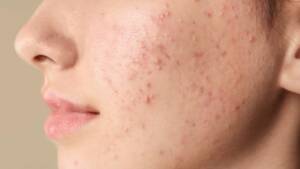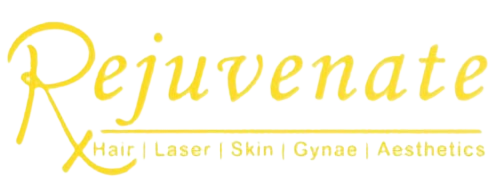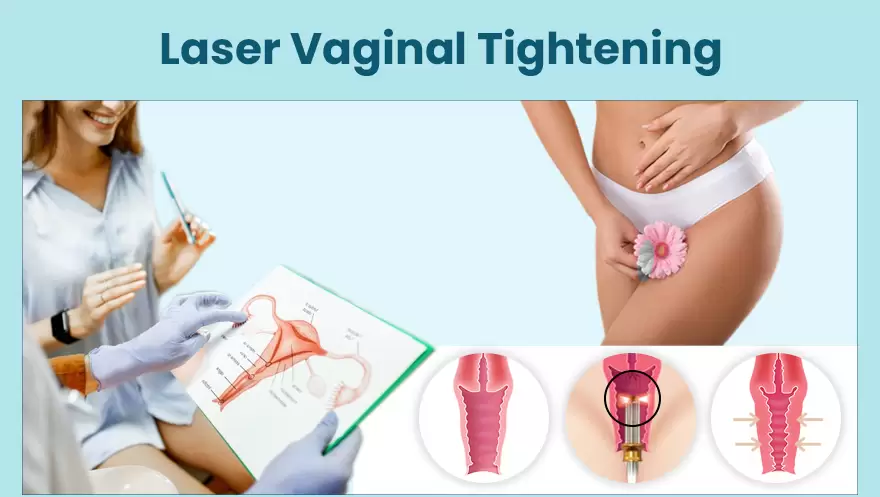 Acne is often thought of as a teenage problem, but many adults—especially in their 20s, 30s, and even 40s—continue to struggle with breakouts. One of the most common culprits behind adult acne is hormonal imbalance. Unlike the occasional pimple, hormonal acne tends to be persistent, cyclical, and often resistant to standard over-the-counter treatments.
Acne is often thought of as a teenage problem, but many adults—especially in their 20s, 30s, and even 40s—continue to struggle with breakouts. One of the most common culprits behind adult acne is hormonal imbalance. Unlike the occasional pimple, hormonal acne tends to be persistent, cyclical, and often resistant to standard over-the-counter treatments.
At Rx Rejuvenate, we frequently see clients dealing with hormonal acne and the emotional toll it can bring. Understanding the root cause is the first step to clear skin.
What is Hormonal Acne?
Hormonal acne is acne that is directly influenced by fluctuations in hormones, particularly androgens (like testosterone). These hormones increase sebum (oil) production, which clogs pores and feeds acne-causing bacteria.
Common Signs of Hormonal Acne:
-
Breakouts along the jawline, chin, and lower cheeks
-
Deep, painful cysts or nodules rather than surface-level pimples
-
Flare-ups that coincide with menstrual cycles in women
-
Acne that worsens with stress or lack of sleep
-
Recurring breakouts despite consistent skincare routines
Causes of Hormonal Acne in Adults
1. Menstrual Cycle & Hormonal Fluctuations
Many women notice acne flare-ups right before or during their periods due to hormonal shifts.
2. Polycystic Ovary Syndrome (PCOS)
A common condition that leads to elevated androgen levels, irregular periods, and persistent breakouts.
3. Stress
Stress increases cortisol, which can indirectly raise androgen activity, worsening acne.
4. Diet
High glycemic foods (sugary snacks, white bread, processed carbs) and dairy may trigger hormonal responses linked to acne.
5. Lifestyle & Sleep
Inadequate rest, irregular routines, and poor self-care habits can aggravate hormonal imbalances.
6. Medications & Contraceptives
Certain birth control methods, steroids, or medications can disrupt hormonal balance and contribute to acne.
Managing Hormonal Acne: What Works
Unlike teenage acne, hormonal acne often requires a multi-pronged approach that addresses both the skin and the root hormonal imbalances.
1. Topical Treatments
-
Retinoids (Vitamin A derivatives) help unclog pores and reduce inflammation.

-
Benzoyl Peroxide and Salicylic Acid target bacteria and excess oil.
-
Azelaic Acid helps reduce pigmentation left by acne scars.
2. Oral Medications
-
Hormonal Therapy: Birth control pills or anti-androgen medications (like spironolactone) may be prescribed for women.
-
Antibiotics: Short-term use to control bacterial activity and inflammation.
3. Professional Treatments at Rx Rejuvenate
-
Chemical Peels: Gently exfoliate and reduce both active acne and post-acne marks.
-
Microneedling with PRP: Improves acne scars, stimulates collagen, and enhances healing.
-
Laser Treatments: Target deep inflammation and pigmentation.
-
Medical Facials: Customised facials help regulate oil and calm inflamed skin.
4. Lifestyle & Diet Adjustments
-
Reduce sugar, processed carbs, and excessive dairy.
-
Eat antioxidant-rich foods: leafy greens, nuts, berries, and omega-3 sources.
-
Manage stress through meditation, yoga, or regular exercise.
-
Ensure 7–8 hours of quality sleep.
Preventing Long-Term Scarring
Hormonal acne often leaves behind stubborn marks and scars. Early intervention and proper treatment minimise long-term damage. Professional treatments like laser resurfacing, microneedling, and PRP therapy are highly effective in scar reduction.
Final Thoughts

Hormonal acne can feel overwhelming, but you don’t have to fight it alone. Identifying the triggers, adopting the right skincare, and addressing hormonal imbalances holistically can make a dramatic difference. At Rx Rejuvenate, we specialise in personalised treatment plans that target both the visible symptoms and the underlying causes of acne.
Book Your Skin Consultation at Rx Rejuvenate
Clinic Address:
207, Basement, Landmark Union Bank, Old Gupta Colony, Kalyan Vihar, Delhi, 110009
Call or WhatsApp: +91 7303160666
Email: [email protected]


